- Home
- Seanan McGuire
Oh Pretty Bird Page 4
Oh Pretty Bird Read online
Page 4
“Oh, I couldn’t say,” said the woman. The calm placidity in her eyes didn’t flicker. “It seems like it’s been forever, but I’m sure it couldn’t be, now could it? Forever is an awfully long time. May I interest you in some postcards?”
“Actually, we were hoping for a copy of the local paper,” said Enid. The stack of newspapers on the counter would have been difficult for her to miss—as would the layer of dust that was growing atop it. All the other surfaces in the store were meticulously clean, but that one pile had been allowed to fall into neglect.
“I’m so sorry I can’t help you,” said the woman, still smiling serenely. “There’s never been a newspaper here in town. I’m afraid you’d have to go to a real big city to find an actual newspaper being printed. We rely on word of mouth around here—and the community bulletin boards, of course. There’s one at the library downtown.”
“Who maintains the bulletin board?” asked Enid. She was struggling to project her best air of calm, genial curiosity. Inwardly, she was roiling. The bookstore clerk couldn’t see a pile of papers that was right next to her. Just how powerful could this Tapper woman be? And if she was as powerful as all of that, could they have any hope at all of stopping her?
The clerk’s smile grew just a fraction of an inch as she replied, “Oh, that would be our librarian, Mrs. Tapper. You can always find her with her finger on the pulse of this community.”
“Is that so,” said Enid, struggling to keep the horror out of her voice. “Well, we’ll just have to go and make her acquaintance. Come on, dear, we don’t want to take up any more of this nice woman’s time.”
“Come back soon!” called the clerk, her last word all but drowned out by the jingle of the bell above the bookstore door. Then she paused, looking confused at the empty shop around her. Who could she possibly have been talking to? It wasn’t like anybody ever came to Whiting. Why, what would be the point in that?
There was nothing here to see.
Jonathan and Fran walked through the residential streets, listening for the sound of children at play. That was the surest way to know there was a school nearby, and given the hour, they were more than reasonably sure that there would be at least one class currently at recess or enjoying a good run around their field. But there was nothing. Only the rustle of the wind in the leaves, and the distant hum of the refinery.
“This is about as creepy as it gets while the sun’s still in the sky,” said Fran, keeping a tight grip on Jonathan’s arm. Her left hand rode low and easy at her side, but Jonathan knew that she wasn’t letting it relax; she could have a knife out and ready to throw in under a second, if she needed to. “I’d almost welcome something nice and bloodthirsty about now. At least that I’d know how to deal with.”
“Please don’t ask the universe for things we’re not in a position to deal with,” said Jonathan quietly. “It would be most inconvenient if we were—oh.” He stopped mid-sentence, his original topic quite forgotten. They had turned a corner while they spoke, and the scene that had appeared before them was enough to shock the words right out of him.
Fran raised her free hand to cover her mouth. “Oh, my laws,” she murmured, her voice only slightly muffled by her hand.
They had, all accidentally, stumbled upon their target: Whiting Elementary, the larger of the town’s two schools. The front of the building was red brick, adorned with colorful pennants and topped off by a large clock. That was of less interest to the pair than the field that spread out behind the school, hemmed in on all sides by houses and separated from the street by a chain link fence. As they had expected and hoped, there were children there. Dozens of children, all of them standing perfectly still on the playground, their faces turned toward the sky.
They looked normal. They were male and female, tall and short, skinny and fat. Some of them wore nice clothes, and others wore what were clearly hand-me-downs, just a few more washings shy of the rag bag. But none of them were dirty, and none of them were running, or jumping, or doing any of the things a normal child would be expected to do.
As Johnny and Fran looked on in horror, the bell rang in the schoolhouse. The children, almost in unison, turned and walked back into the building. None of them spoke. None of them laughed. None of them looked toward the two strange adults who were staring at them as they went.
When the last child was out of sight, Fran dropped her hand. “Johnny?”
“Yes?”
“I’m going to put a bullet in that arrogant head of hers. I don’t think you should try to stop me.”
Jonathan slowly shook his head. “I wouldn’t dream of it.”
The library was a solid little free-standing structure that had probably started life as a schoolhouse, back before the town became large enough to require a proper school. Enid and Alexander parked on the street before taking a moment to study the building, looking for obvious escape routes.
It seemed to be a quite straightforward floor plan. Barring a basement of some sort, there wasn’t much chance of them being separated once they were inside. Enid set the leather satchel containing the mice gently down on the truck’s front seat. “I need your attention, if you would be so kind,” she said.
A row of tiny heads immediately appeared through the open zipper, eyes all fixed on her.
Trying to look like she was doing something perfectly normal and understandable, rather than chatting with a small colony of talking mice, Enid said, “We’re going inside the library, and I can’t excuse carrying this bag with us. What’s more, the Tapper woman should be inside, and I’d rather not take you into her presence while I can avoid it. If we don’t return inside the hour you’re to go find Johnny and Fran and tell them where we went. Do you understand me?”
“Yes, Priestess,” squeaked the novice in charge of this expedition, his ears going flat against his head. “We wish you would let one of us Accompany you.”
“I know,” she said gently. “But you can’t. We’ll be back soon.” She slid out of the truck, shutting the door behind her. Alexander was already waiting for her. She forced a smile as she stepped up next to him and slipped her arm through his. “Just had to fix my hair.”
“You look lovely, sweetheart,” he said, and together they walked up the library steps to the front door, which was painted a bright and cheerful red. An artifact of the building’s origins as a primary school, no doubt, one that the town probably maintained as a “tie to the past.” Alexander had often thought that nostalgia was one of the most powerful forces in the world, at least where intelligent creatures were concerned. No matter how good things became, they would always be worse than they had been before in the minds of some, and not as good as they could someday be.
Opening the door released a rush of cool air, scented with furniture polish and paper, and the cool, underlying smell of library, which was very much like the smell of bookstore, only larger and even more invasive. Alexander relaxed marginally at that smell. It was so ordinary, so much a part of his daily life, that he couldn’t help thinking it would have changed if Heloise Tapper were really standing as the librarian.
The entryway fed into a small space that had doubtless once been the school’s mud room. The cubbies and coat hooks were gone now, replaced by a returns desk and a small cart with books offered up for sale by the Friends of the Whiting Library. Alexander looked around, searching for the promised community bulletin board. Enid focused on the book sale cart. There was dust on the handle. Now, she wasn’t a librarian, but she had been a librarian’s wife for decades, and she was well-acquainted with the cheerfully interfering women of the Friends of the Library. They would have sooner died than allow dust to build up on their precious wares.
Whatever was wrong with this town, it extended to the library. Of that much, she was sure.
Alexander followed her gaze to the cart and nodded, indicating that he had seen the same thing she had. With no further discussion, they moved further in, past the returns desk and into the airy cathedral of t
he main room.
Shelves lined the walls. More shelves, these free-standing, filled the rest of the available space, falling away only when they reached the miniaturized fantasy kingdom of the children’s section, where all the chairs were made for smaller bodies, and all the books were brightly colored. A few long reading tables appeared here and there between the shelves, like ships sailing in a sea of knowledge. There were no patrons.
But there was a librarian. She was seated at a large mahogany desk tucked away behind the library counter, her head bent over whatever she was studying. Her hair was black, and her skin—what they could see of it from a distance—was exceedingly pale. Alexander and Enid walked across the library to the counter. She didn’t look up.
The two exchanged a look, equally bemused, before Alexander turned to face the woman and cleared his throat. “Excuse me?” he called, making no effort to blunt or disguise his accent. “My wife and I are lost. Is this the library?”
The librarian’s head snapped up, revealing a pinched but pretty face and large blue eyes of a color that seemed somehow unreal, like looking at the sky through a sheet of ice. She looked confused at first, and then, without missing a beat, her confusion became something akin to anger. “How did you get here?” she demanded, standing. Her voice was perfectly pleasant, at odds with the scowl that was forming on her face.
“The door was unlocked,” said Alexander, feigning bafflement. “I’m sorry, are you closed? Should we come back later?”
“We’re on a tour of the state, you see, and my cousin Marian said that this was one of the finest small town libraries in Indiana,” said Enid. “I told her, Marian, I said, you can’t be serious—Whiting is a refinery town! What would they want with a library? But she was firm, so we thought we’d come through and see if she was serious.”
Any real librarian would have been unable to resist that lure. Either they would have leapt at the chance to explain why they were the best, or they would have been offended by the insinuation that a refinery town couldn’t have a decent library—or possibly, if they were exceedingly lucky, both reactions at once.
The death-pale woman who had been seated at the librarian’s desk did neither. She simply continued to scowl as she said, “We’re open for business, but I’m afraid we’re short-staffed today, so if you need any help, you may find yourselves waiting for quite some time.”
“Oh,” said Alexander. He sounded genuinely disappointed. “Well, that’s too bad, Miss…?”
“Mrs. Tapper,” said the woman. “I’m the head librarian here.”
“It’s a pleasure to meet you, ma’am,” said Alexander. “I’m Paul, and this is my wife, Caroline. We’re sorry we snuck up on you before. It wasn’t our intention.”
For the first time since she’d stood, Heloise Tapper’s expression changed. Her scowl melted away, replaced by a look of absolute bemusement. “I must have been very focused on my book,” she said, tone remaining neutral, even pleasant, despite the confusion on her face. “I’m normally much more aware of my surroundings.”
“It happens to the best of us,” said Alexander. “May we look around a bit without disturbing you?”
“Do what you like,” said Heloise, and flung herself back into her seat without as much as a goodbye, turning her chair around so as to make their dismissal even more clear.
Alexander and Enid exchanged a glance as soon as Heloise’s back was turned. None of this made any sense. Still, they had managed to find her, and their charms against thought-transference seemed to be working, at least so far. That meant they needed to keep up their masquerade at least enough to avoid suspicion.
“Come on, honey,” said Alexander. “Let’s go see the reference section.”
Jonathan and Fran walked back toward the parking lot where they were meant to meet his parents as quickly as they dared. Any faster and they would certainly have attracted attention to themselves, which was the last thing either of them wanted. Not in a town where the children stood like statues on the playground and the streets were all deserted. Something was terribly wrong in Whiting, and whether that something was Heloise Tapper or even worse, they didn’t particularly care. They just wanted to avoid being swept up in it before they could make it stop.
The truck still wasn’t there when they arrived. The pair paused for a moment before turning, almost in unison, to check the clock that was visible atop the distant shape of city hall. The official meeting time was still twenty minutes away.
“We’re early,” said Fran needlessly.
“We’ll wait,” said Jonathan.
“While you’re waiting, would you care to explain what you were doing at my school?” asked a voice from behind them.
They both jumped, and it was sheer force of will—that, and a desire not to engage in a shooting match in the middle of the city—that kept them from reaching for their weapons as they turned to face the speaker.
It was a man, tall and slim and surprisingly pale for a refinery town in Indiana. His hair was black, and his eyes were disconcertingly blue, like pieces of carnival glass that had somehow found themselves inside a human head. He was frowning sharply at the pair of them, looking like he’d never seen anything like them before.
“I asked you a question,” he said.
“We noticed,” said Fran. “You just startled us, is all. We’re sorry we were looking at your schoolhouse if we weren’t supposed to be. We’re considering moving to Whiting sometime in the next year or so, and wanted to see the town. That included the school. A couple our age has to consider all the possible futures, don’t we?”
His frown didn’t lessen, although his tone was perfectly pleasant as he said, “I suppose that makes sense. In the future, it would be better if you called ahead. We don’t want to risk disrupting the children’s schooling.”
“No, we wouldn’t want that,” agreed Fran. “Forgive me for asking, but are you all right? You look a mite upset. Did we throw things off that badly?”
“I…” The man stopped, his frown turning into something complicated and confused. “I just didn’t realize that you were coming. That’s all.”
“We’ll be sure to contact the school before we come again,” Fran said. “Are you a teacher? If we moved here, would you be looking after little Richard and Sally?”
“I’m the principal,” said the man. “Robert Tapper.”
“Pleasure,” said Fran, and continued to smile, despite the difficulty it presented. She wanted to react to the man’s name. She didn’t dare. She dare didn’t offer her name, either, and Jonathan followed her lead, keeping quiet. The two of them simply stood there, smiling pleasantly, until the man—who had never ceased to look unhappily confused—finally turned and walked away. Still they stood, not moving, until he had turned the corner and disappeared from view.
“We alone here?” asked Fran quietly.
Jonathan twisted, scanning the parking lot for signs that they were being watched. “We seem to be,” he said, keeping his voice equally low.
“How much do you remember about what Heloise Tapper looked like?” She asked the question as carefully as she could, trying to keep the blame out of her voice. That, too, wasn’t all that easy. Even knowing that Heloise had used thought-transference to somehow manipulate Johnny’s understanding of his own past, Fran had never quite gotten over the image of him pulling a gun on her.
“She was…pretty,” said Jonathan slowly. He sounded uncertain about even that much. “Her hair was dark, I remember that. I think she was pale? Like she didn’t get out in the sun very often. I’m sorry, darling, I forgot most of the memories she made for me as soon as you broke her hold.”
“Believe me, I’m glad of that; if you hadn’t forgotten, I’d’ve been a widow before I was ever a wife.”
Jonathan, who valued his skin still attached to his bones, wisely said nothing about the contradiction inherent in her words.
Fran continued, “Here’s the thing: if you stood the man we were just speaking
to next to her and said he was her twin brother, I’d believe you. He looked like a boy version of the same person. Not just a relative—the same person. We already knew she wasn’t human, but Johnny, what if this town is so messed up because there’s more than one of whatever-they-are hanging around? One of ’em was enough to convince you that you were a devoted husband, scare the crap out of a whole hive of Apraxis, and get an entire town to believe that she belonged. Two or more…”
“Might explain why we’re back in the age of Prohibition, and why those schoolchildren were acting like they had been drained of all independent thought,” said Jonathan, picking up the thought. “At least we know one thing now: the charms work. He didn’t change anything in my mind, that I’m aware of, and he didn’t change yours, either.”
“Why would you say such things about my husband?” asked Fran, all wide-eyed innocence. Jonathan’s scowl was enough to set her laughing for a moment before she sobered, and said, “His face.”
“What about it?”
“There was something wrong with the way he was using it. It was like it didn’t match his voice, you know? He was trying to sound all pleasant and local and like he didn’t mind one bit if we wanted to hang around and look at stuff, as long as we came by the office first. But he was looking daggers at us the whole time. I got the feeling he couldn’t…well, that he couldn’t quite see us the way he expected to be able to.”
“If the Tappers come from a species that is naturally capable of reading minds, they may not have developed the fine facial recognition skills that humans and associated species possess,” said Jonathan slowly. His tone was thoughtful: he had switched over into his academic mode, and Fran was happy to let him. He did his best work when he had divorced himself from the situation, and started looking at it purely as a scientific conundrum. “That would explain the unusual facial expressions, especially with us wearing the charms to prevent thought-transference. If he can’t ‘see’ the appropriate expressions in our minds, he can’t mimic them.”

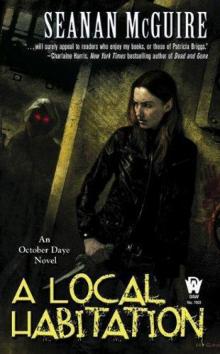 A Local Habitation
A Local Habitation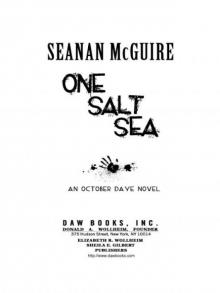 One Salt Sea
One Salt Sea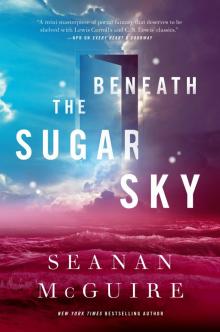 Beneath the Sugar Sky
Beneath the Sugar Sky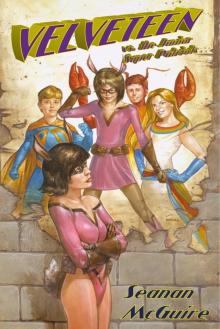 Velveteen vs. The Junior Super Patriots
Velveteen vs. The Junior Super Patriots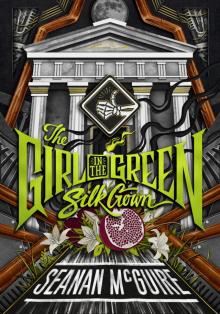 The Girl in the Green Silk Gown
The Girl in the Green Silk Gown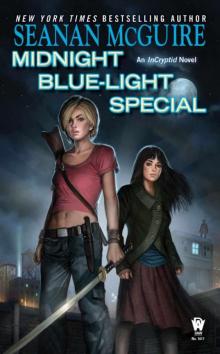 Midnight Blue-Light Special
Midnight Blue-Light Special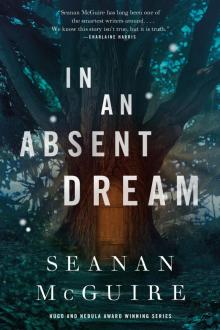 In an Absent Dream
In an Absent Dream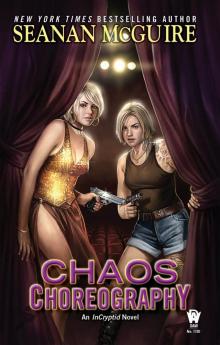 Chaos Choreography
Chaos Choreography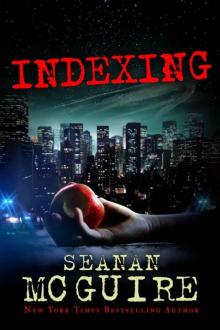 Indexing
Indexing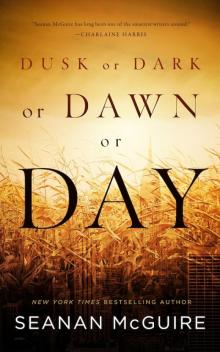 Dusk or Dark or Dawn or Day
Dusk or Dark or Dawn or Day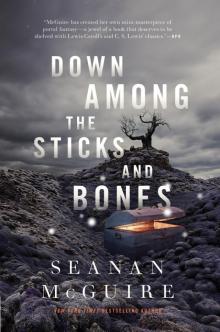 Down Among the Sticks and Bones
Down Among the Sticks and Bones The Razor's Edge
The Razor's Edge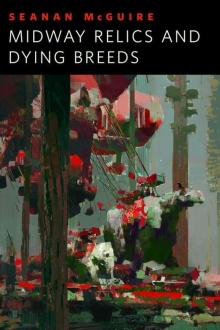 Midway Relics and Dying Breeds
Midway Relics and Dying Breeds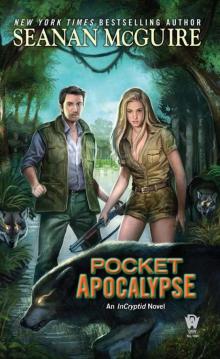 Pocket Apocalypse
Pocket Apocalypse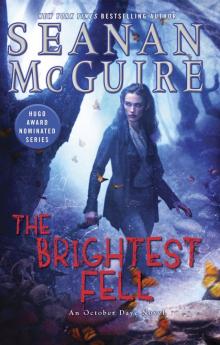 The Brightest Fell
The Brightest Fell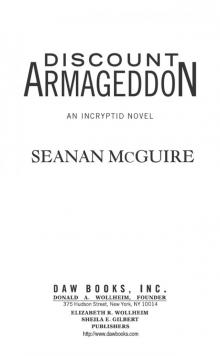 Discount Armageddon
Discount Armageddon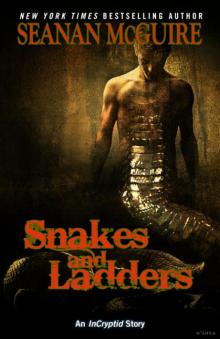 Snakes and Ladders
Snakes and Ladders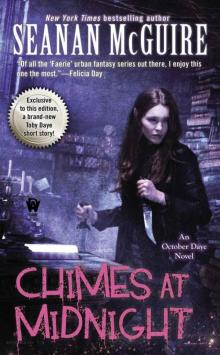 Chimes at Midnight
Chimes at Midnight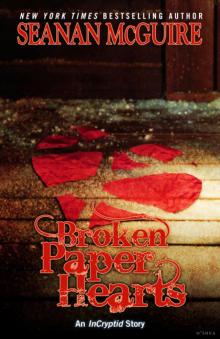 Broken Paper Hearts
Broken Paper Hearts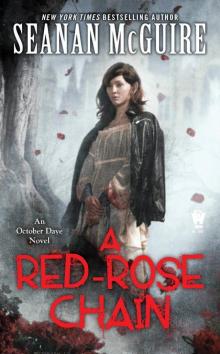 A Red-Rose Chain
A Red-Rose Chain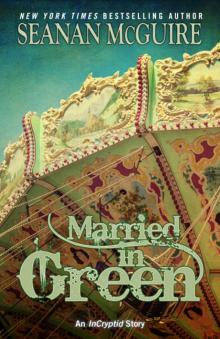 Married in Green
Married in Green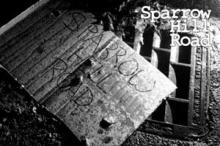 Sparrow Hill Road 2010 By Seanan
Sparrow Hill Road 2010 By Seanan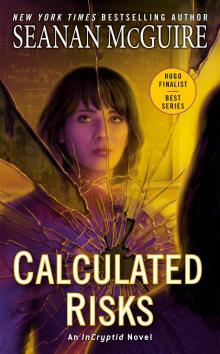 Calculated Risks
Calculated Risks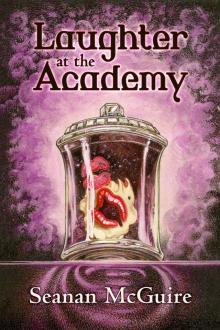 Laughter at the Academy
Laughter at the Academy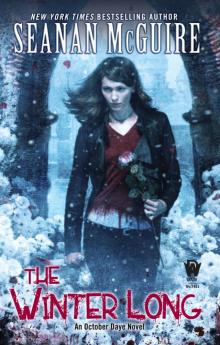 The Winter Long
The Winter Long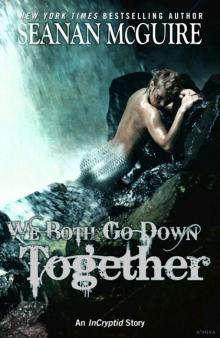 We Both Go Down Together
We Both Go Down Together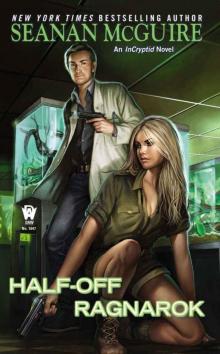 Half-Off Ragnarok
Half-Off Ragnarok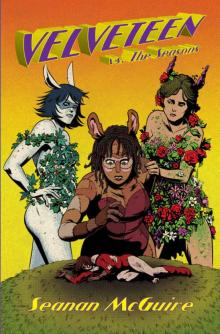 Velveteen vs. The Seasons
Velveteen vs. The Seasons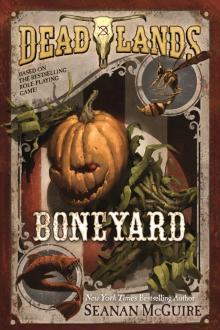 Boneyard
Boneyard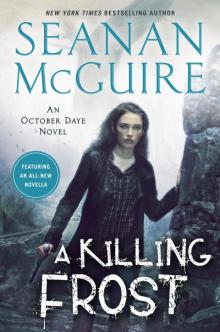 A Killing Frost
A Killing Frost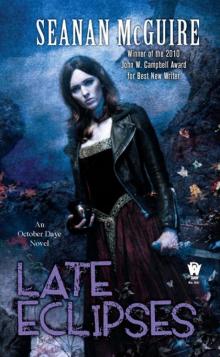 Late Eclipses
Late Eclipses Submerged
Submerged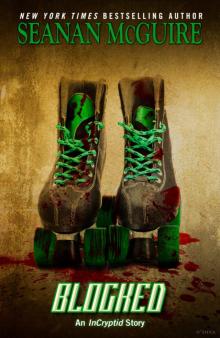 Blocked
Blocked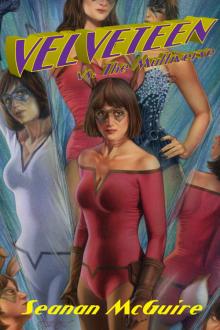 Velveteen vs. The Multiverse
Velveteen vs. The Multiverse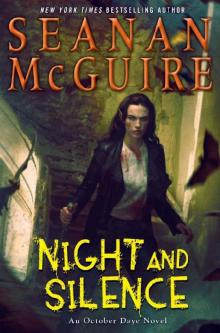 Night and Silence
Night and Silence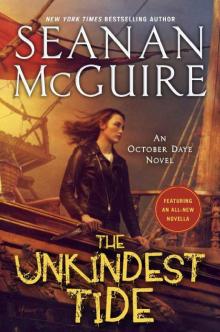 The Unkindest Tide (October Daye)
The Unkindest Tide (October Daye)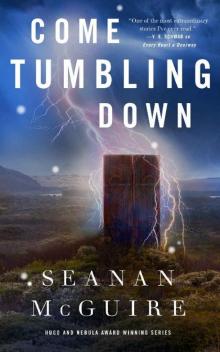 Come Tumbling Down (Wayward Children)
Come Tumbling Down (Wayward Children)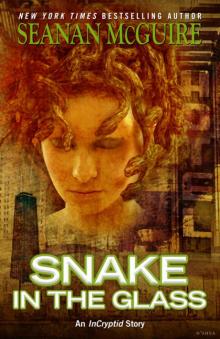 Snake in the Glass
Snake in the Glass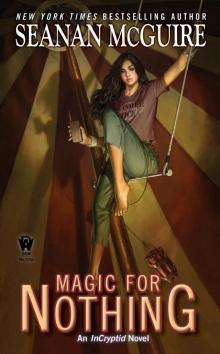 Magic for Nothing
Magic for Nothing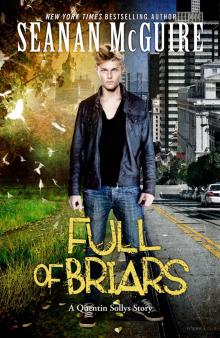 Full of Briars
Full of Briars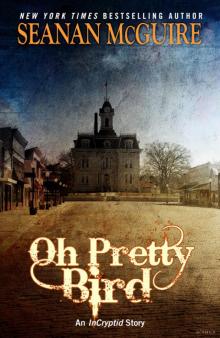 Oh Pretty Bird
Oh Pretty Bird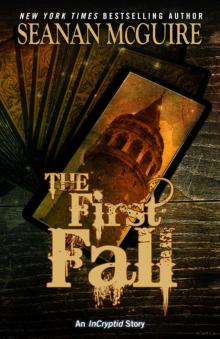 The First Fall
The First Fall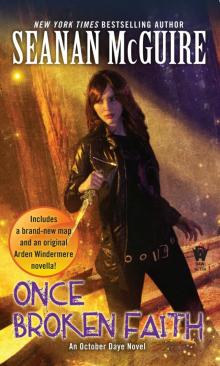 Once Broken Faith
Once Broken Faith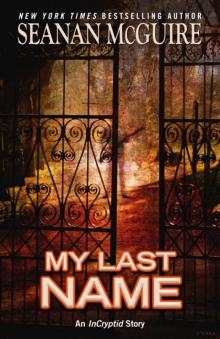 My Last Name
My Last Name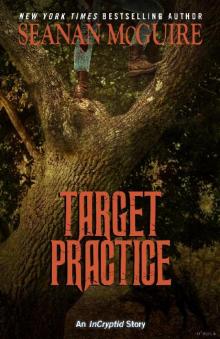 Target Practice
Target Practice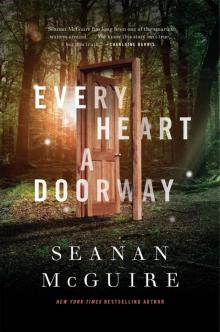 Wayward Children 01 - Every Heart a Doorway
Wayward Children 01 - Every Heart a Doorway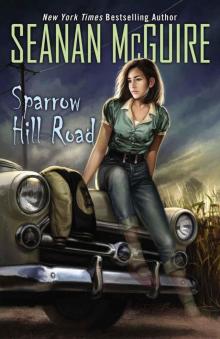 Sparrow Hill Road
Sparrow Hill Road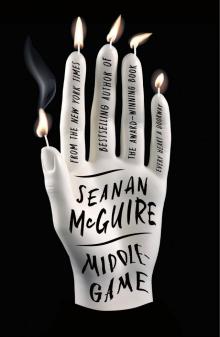 Middlegame
Middlegame Juice Like Wounds
Juice Like Wounds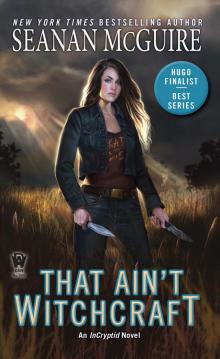 That Ain't Witchcraft
That Ain't Witchcraft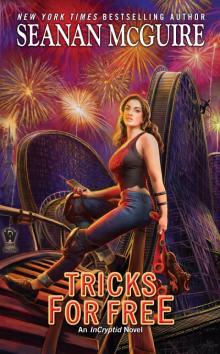 Tricks for Free
Tricks for Free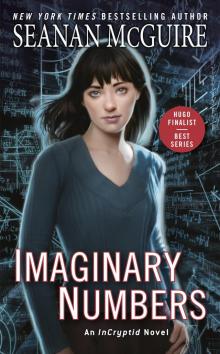 Imaginary Numbers
Imaginary Numbers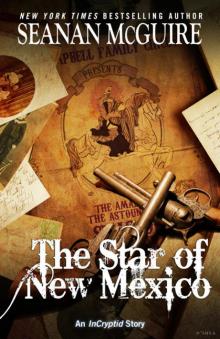 The Star of New Mexico
The Star of New Mexico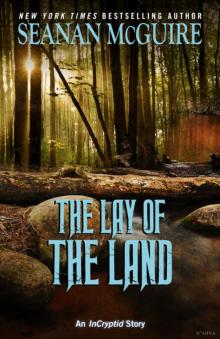 Lay of the Land
Lay of the Land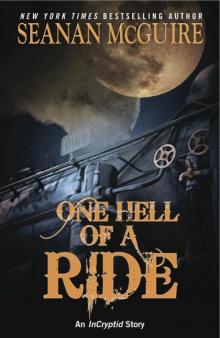 One Hell of a Ride
One Hell of a Ride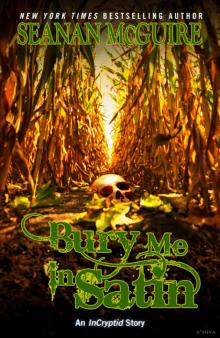 Bury Me in Satin
Bury Me in Satin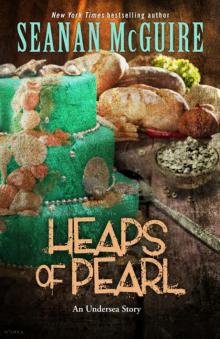 Heaps of Pearl
Heaps of Pearl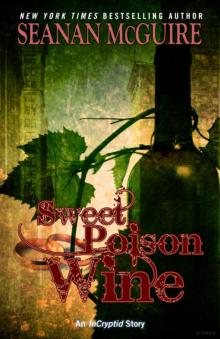 Sweet Poison Wine
Sweet Poison Wine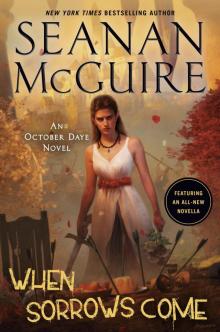 When Sorrows Come
When Sorrows Come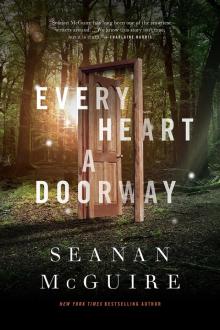 Every Heart a Doorway
Every Heart a Doorway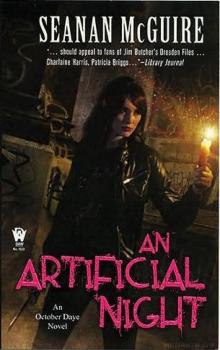 An Artificial Night - BK 3
An Artificial Night - BK 3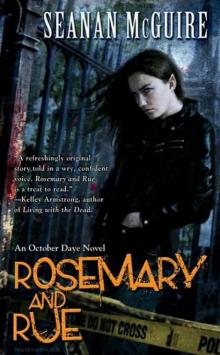 Rosemary and Rue
Rosemary and Rue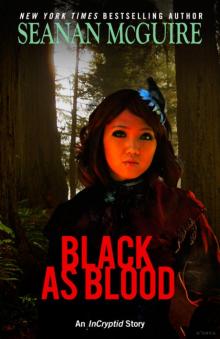 Black as Blood
Black as Blood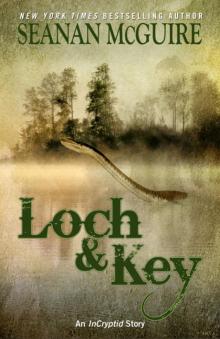 Loch and Key
Loch and Key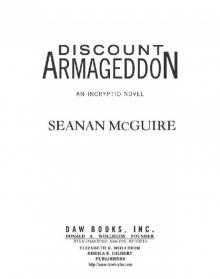 Discount Armageddon: An Incryptid Novel
Discount Armageddon: An Incryptid Novel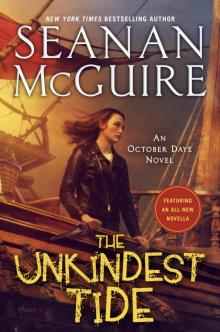 The Unkindest Tide
The Unkindest Tide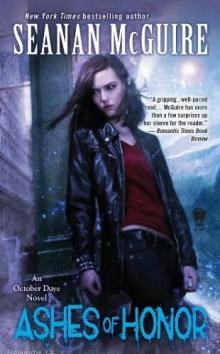 Ashes of Honor od-6
Ashes of Honor od-6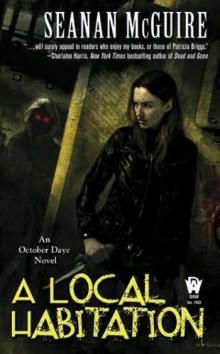 A Local Habitation od-2
A Local Habitation od-2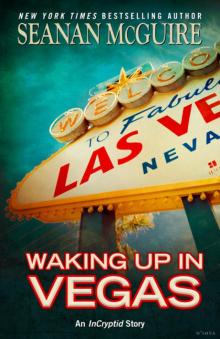 Waking Up in Vegas
Waking Up in Vegas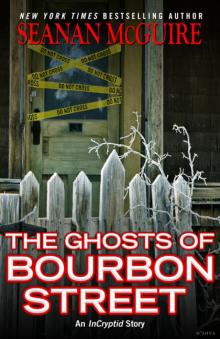 The Ghosts of Bourbon Street
The Ghosts of Bourbon Street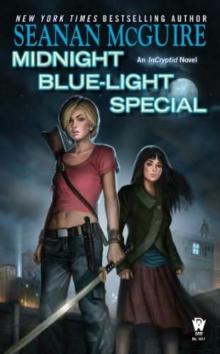 Midnight Blue-Light Special i-2
Midnight Blue-Light Special i-2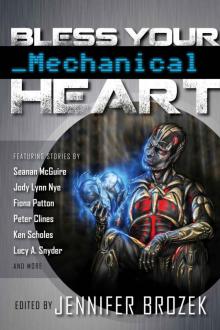 Bless Your Mechanical Heart
Bless Your Mechanical Heart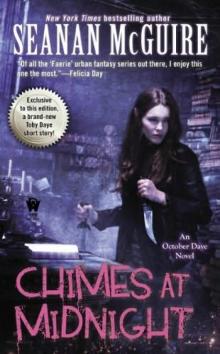 Chimes at Midnight od-7
Chimes at Midnight od-7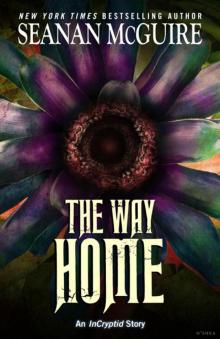 The Way Home
The Way Home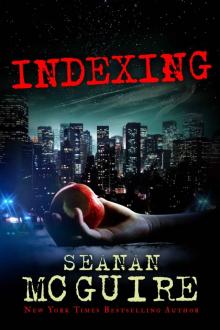 Indexing (Kindle Serial)
Indexing (Kindle Serial)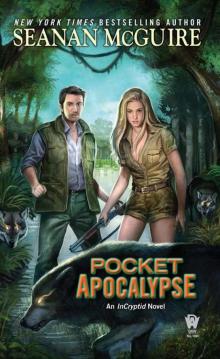 Pocket Apocalypse: InCryptid, Book Four
Pocket Apocalypse: InCryptid, Book Four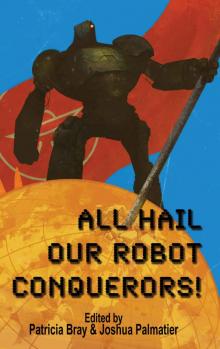 All Hail Our Robot Conquerors!
All Hail Our Robot Conquerors!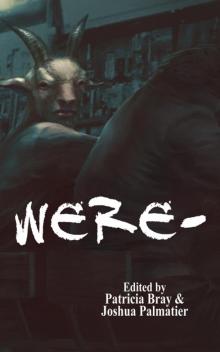 Were-
Were-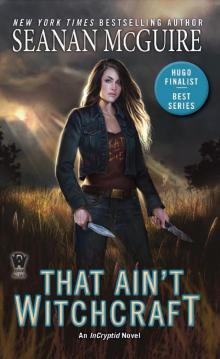 That Ain't Witchcraft (InCryptid #8)
That Ain't Witchcraft (InCryptid #8)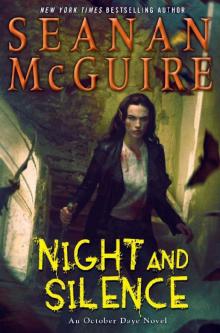 Night and Silence (October Daye)
Night and Silence (October Daye)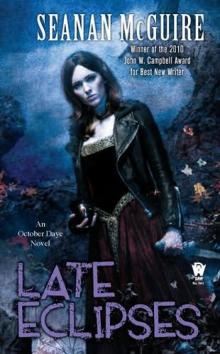 Late Eclipses od-4
Late Eclipses od-4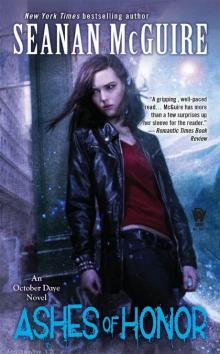 Ashes of Honor: An October Daye Novel
Ashes of Honor: An October Daye Novel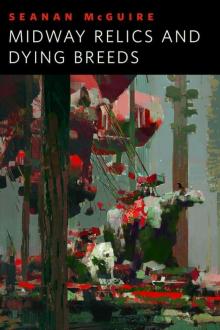 Midway Relics and Dying Breeds: A Tor.Com Original
Midway Relics and Dying Breeds: A Tor.Com Original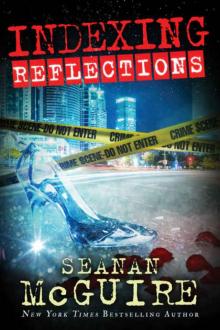 Indexing: Reflections (Kindle Serials) (Indexing Series Book 2)
Indexing: Reflections (Kindle Serials) (Indexing Series Book 2)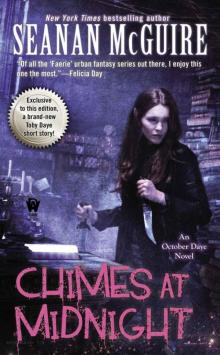 Chimes at Midnight: An October Daye Novel
Chimes at Midnight: An October Daye Novel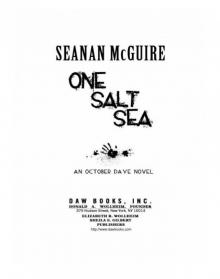 One Salt Sea: An October Daye Novel
One Salt Sea: An October Daye Novel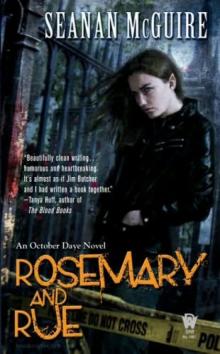 Rosemary and Rue od-1
Rosemary and Rue od-1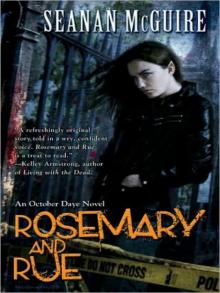 Rosemary and Rue: An October Daye Novel
Rosemary and Rue: An October Daye Novel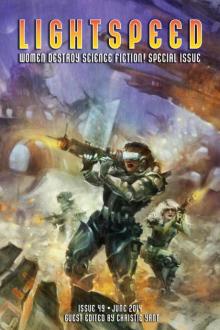 Lightspeed Magazine Issue 49
Lightspeed Magazine Issue 49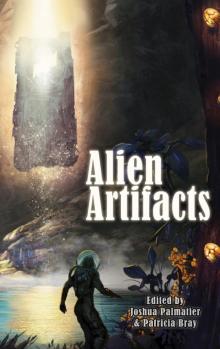 Alien Artifacts
Alien Artifacts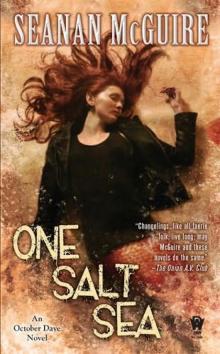 One Salt Sea od-5
One Salt Sea od-5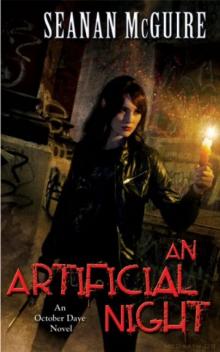 An Artificial Night od-3
An Artificial Night od-3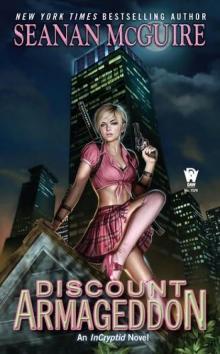 Discount Armageddon i-1
Discount Armageddon i-1